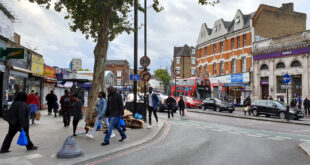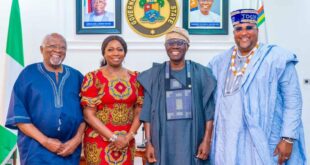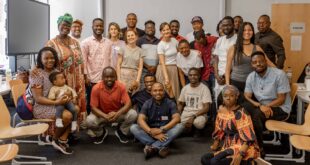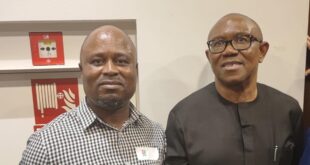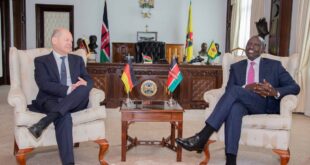America marks the 50th anniversary of the assassination of the Rev Martin Luther King Junior Wednesday. Best known for his role in the advancement of civil rights by using the tactics of nonviolence and civil disobedience, King was assassinated on 4 April 1968 in Memphis, Tennessee.
Is Black America better off today than in Dr King’s time? Our New York-based contributing editor Gyvara Lasana writes on the lessons of the life of the US civil rights leader for our world of today.
The legacy of Martin Luther King Jr extends far beyond America. Human rights and anti-oppression movements around the world owe gratitude to King, from the worldwide women’s movement, to South Africa and Zimbabwe, Slovakia and the Czech Republic, die Wende and Germany’s Friedensbewegung, Tiananmen Square in Beijing, Poland and the Solidarity movement, immigration rights, as well as workers’ rights, especially the migrant farm workers during the 1970s in California. It seems that the translated verses of “We Shall Overcome” have been sung by every race, colour and creed on planet earth.
Who was this man? This Martin Luther King Jr? Few people realize that he took up the mantle of the movement when he was just 26 years old and that he died at age 39. Even more remarkable, King’s period of social agitation extended a mere 12 years, from 1956 to 1968, with most major accomplishments covering the eight years between Selma, Alabama, and the passage of the Civil Rights Act in 1965.
The comparisons to India’s Mahatma Gandhi are commonly known, but King more properly stands, I believe, in the Black American church. Or as Taylor Branch, King’s major biographer, phrased it: “He put one foot in the Constitution and the other in Scripture.”
Thus King not only taught a generation to view the world from a moral perspective, he also pushed America into its modern age by extending the nation’s promise of freedom and ascendancy to everyone, as well as negating the obvious contradictions in democracy that legalized racism had created.
The long march to equality was not easy. Several civil rights workers – men and women, Black and White, met savage deaths at the hands of avowed racists. Blacks who dared register to vote were shot while standing in line to cast their ballots. And of course nothing can erase the scars – real and witnessed, from dogs, cattle prods, and water hoses-suffered during the epochal Selma and Birmingham marches.
It would be heresy to suggest that the endurance of these events somehow mark Martin Luther King as Christ-like, but surely he, as Professor Alan Wolfe notes, is every bit the man we see in Odysseus, who “more than all other men, was born for pain.”
And this brings us to Dr King’s true legacy – his commitment to non-violent struggle. “I am not going to allow anybody to pull me so low as to use the very methods that perpetuated evil throughout our civilization,” he said in 1966. “I’m sick and tired of violence. I’m tired of war and conflict in the world. I’m tired of shooting. I’m tired of hatred. I’m tired of selfishness. I’m tired of evil. I’m not going to use violence no matter who says it!”
Sadly, no one today speaks for non-violence. The concept seems unmanly or oddly alien to the succeeding generations of feel-good posturing. Public service has fallen into disrepute, as rising populations obsess over success and individual accomplishment. We don’t even know our neighbours, let alone empathize with their struggles.
I doubt that the Martin Luther King of old would be endeared of today’s world, but I also doubt that he would be intimidated. He would protest the deadly repression in Myanmar. He would condemn China for its policy toward Tibet. He would patrol the waters between North Africa and Europe, and assist any refugee rowing to freedom. He would be the Martin Luther King of today, much like the King of old.
 THE AFRICAN COURIER. Reporting Africa and its Diaspora! The African Courier is an international magazine published in Germany to report on Africa and the Diaspora African experience. The first issue of the bimonthly magazine appeared on the newsstands on 15 February 1998. The African Courier is a communication forum for European-African political, economic and cultural exchanges, and a voice for Africa in Europe.
THE AFRICAN COURIER. Reporting Africa and its Diaspora! The African Courier is an international magazine published in Germany to report on Africa and the Diaspora African experience. The first issue of the bimonthly magazine appeared on the newsstands on 15 February 1998. The African Courier is a communication forum for European-African political, economic and cultural exchanges, and a voice for Africa in Europe.




